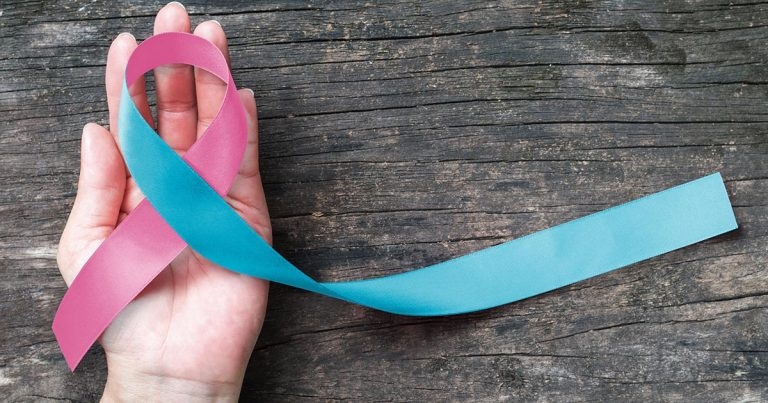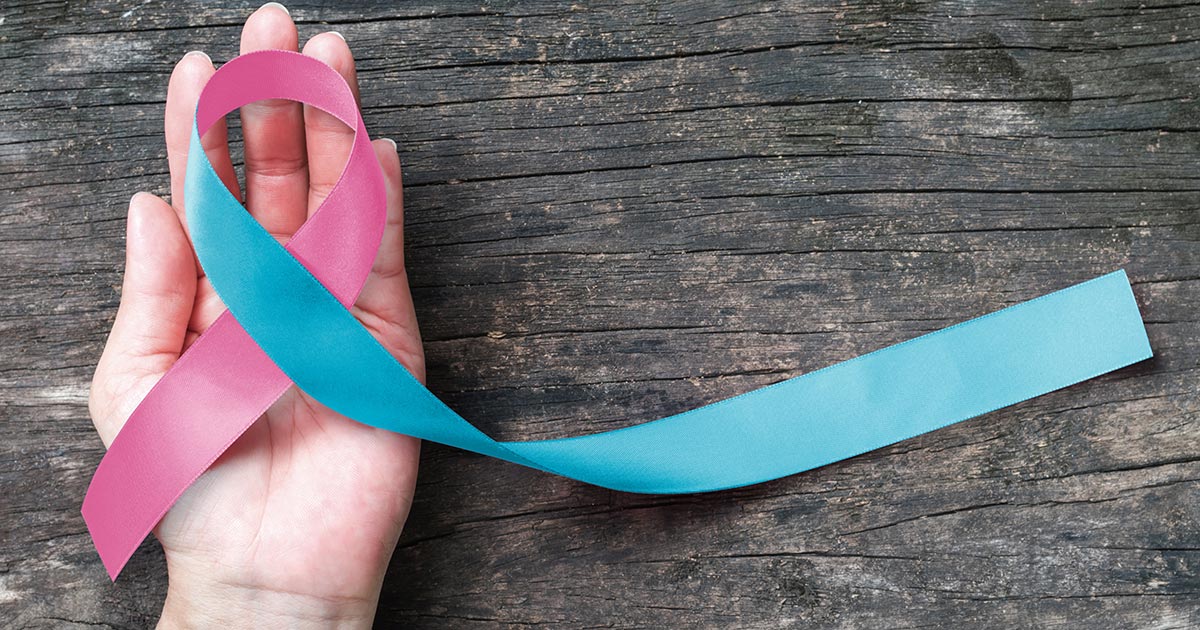25 Oct 2022
Pregnancy and Baby Loss Week took place from 9 to 15 October. Sally Linghorn RVN – while sharing her personal experience – explains why discussion among veterinary nurses about this sadly common heartache is so important…

Image © Chinnapong / Adobe Stock

After experiencing two early miscarriages last year, I wrote a short blog post in October 2021 during Pregnancy and Baby Loss Awareness Week to prompt reflection, remembrance and discussion around our loss experiences within the profession to help others to feel less alone.
Since writing that post, I experienced my third early miscarriage at the start of this year, having seen his heartbeat at an ultrasound scan on Christmas Eve.
I became a 1-in-100 statistic, having had three losses, but most of all found myself at the lowest ebb I have found myself at post-loss – feeling desperate, stuck, scared of it happening again and so very angry at those who manage to have a baby.
I found that talking and writing about my experiences to help others was the best way to work through the trauma I experienced, and still feel. Never could I have imagined how life changing the experiences could be, nor how difficult it would be to get any sort of direction on where to turn from the health care system afterwards – from a physical and mental health point of view.
After the first two miscarriages, I experienced bleeding at work during my night shifts – lonely experiences, trying to weigh up what to do; what to think, in a toilet cubicle at work. I looked for hope (and potential facts) on Google, messaged my husband for guidance from afar late at night… So many shifts ended in a handover to the day team, while feeling uncomfortable with bleeding (once bleeding through my scrub trousers), scared, and culminating in multiple trips to A&E in the hope of an emergency scan.
While caring for animals and their owners at work, our own well-being can too often be neglected. I found it too difficult to continue nursing through most of the process of losing the babies and took time off. I was a shell of a person. I had to go to hospital for multiple ultrasound scans – in silence. The ultrasonographers explained nothing. It was difficult enough not being allowed my husband in with me due to COVID, but waiting in silence for some news of what could or could not be seen was torturous.
Losing my first baby physically took weeks, even involving contractions for hours in the early hours one morning, and I had procedures under general anaesthetic for all three miscarriages. I had time off after the procedures, but the time to fix myself enough to be able to face a shift at work without bursting into tears was a real unknown.
I was not given any compassion when I called my workplace’s HR department after the first loss to ask about whether I was entitled to sick pay or compassionate leave, nor directed anywhere for mental health help – simply given the basic facts about what you are not paid because the loss was before 24 weeks.
Many of the larger veterinary groups have stepped up their maternity policies in recent years, which has been – quite rightly – celebrated, but how about a policy in place for those of us veterinary nurses and surgeons who experience a loss or miscarriage – at any stage in pregnancy? One in four pregnancies end in a loss and that surely requires urgent acknowledgement.
Laura Buckingham – one half of The Worst Girl Gang Ever, alongside Bex Gunn, which has recently released its eponymous book and whom I recorded a podcast with after my first loss – reiterates that “losing a baby at any stage of pregnancy is a traumatic and isolating event. Those people who experience a loss after 24 weeks’ gestation are entitled to maternity leave and rightly so. However, if you lose a baby before that cut off then there are no hard and fast rules or guidance, so often you’ve barely found your feet or recovered from the physical pain before you’re back to work”.
The Miscarriage Association launched The Pregnancy Loss Pledge last year, urging companies to commit to supporting employees through the distress of miscarriage. So far, major organisations and companies such as the RSPCA, Co-op and Post Office are on board. Deputy director of the Miscarriage Association Vicki Robinson wants companies to consider that “having a clear policy or guidance in place helps everyone – the person experiencing the loss, and the manager and other staff doing their best to try to help their colleague through”.
Thankfully, Vicki explains: “We are starting to see a shift in how organisations are approaching pregnancy loss in the workplace, with many now starting to recognise the significant impact it can have on women and their partners. We are extremely encouraged by the number of businesses who are putting in place considered and thoughtful policies, and signing our Pregnancy Loss Pledge. But we know there is more to be done, and our aim is that every workplace acknowledges the impact of pregnancy loss and treats their staff with empathy and understanding.”
Veterinary nursing is so all-encompassing as a career – we can be hard on ourselves on a daily basis as we lay in bed at night, wishing we had had time to do something better. And it’s a profession where feeling confident in your colleagues is crucial. So, to not have the confidence in one’s self after a traumatic event crushes you is excruciatingly and impossibly tough.
To suddenly be able to undertake x-rays or top up isofluorane again while remembering: “I can do this now, there’s no baby there anymore”, is agony. I remember shortly after my second miscarriage, a cat was brought into the practice one night as she was pregnant and bleeding – we had to perform an emergency caesarian and the kittens were dead. The familiarity of the sight of the birth sacks as I cleaned theatre in the early hours of the morning made me slump to my knees in tears.
To encounter others in the workplace who are successfully pregnant, and discussing going for a scan or sharing news with their family, is truly crippling at times. It is so hard to know how on earth to explain why you suddenly leave the prep area during one of these discussions without feeling bad for feeling bad.
Vicki explains: “A lack of support can mean reduced productivity, lower standards of work, increased absence and even resignation.”
The day before my third miscarriage scan revealed what we already knew – that the heart had stopped beating – a colleague who I had worked with in the late stages of her pregnancy brought her very new baby in to meet her team. I spent most of my shift keeping myself out of the way, cleaning, while crying uncontrollably under my mask. I resigned from this job shortly afterwards. I was broken.
The truth is, triggers are everywhere, but others don’t know what we have been through. They do not know that we are in limbo. Those of us who have lost a baby are a kind of hidden, invisible gang – we do not have the bump; pregnancy is no longer in progress – but we are trying and are even more delicate. It is the oddest, saddest, emptiest feeling to know that you have been pregnant several times in two years, had 15 scans, and have no baby or imminent baby.
Experiencing pregnancy and baby loss isn’t something that will ever be resolved or concluded – the memories will always be on your mind. I have undertaken baby loss-specific counselling through the charity Making Miracles, paid for private counselling and called baby loss helplines on numerous occasions, desperately searching for answers.
I have been for further investigations under general anaesthetic, spent hundreds of pounds on private appointments, waited months for results and appointments, made dozens of telephone calls to plead with doctors and early pregnancy units to let me at least try progesterone, and shifted from anxiety medication to antidepressants – having finally been diagnosed with clinical depression by a specialist we visited in London.
The time just flies past and life goes on despite our babies’ lives not. No wonder returning to work and a daily routine seems impossible.
PTSD UK says that an Imperial College London survey of 113 people who had suffered a miscarriage or ectopic pregnancy found that 4 in 10 of them were reporting symptoms of PTSD in the three months after their miscarriage, and also suffering from moderate to severe anxiety, distress and depression.
Laura explains: “The devastation and trauma does not disappear when you return to work, be it after two days, two weeks or even a year. The mental health implications and psychological and emotional effects are far-reaching, and long-lasting. Here is our advice for returning to work following baby loss:
Breaking the news – have a think about what you want colleagues to know about your loss. If people didn’t know you were pregnant, you may choose to keep it private, but you may struggle with more physical or emotional symptoms after returning to work, so if your boss/HR is aware, they can support you better. If people knew about your pregnancy then maybe forward a message on to someone you trust to share with the team about what happened and how they can support you on your return (such as, do you want to talk about it?).
Preparing for questions – try to prepare yourself for the common questions, as these well-meaning queries can be incredibly triggering and we all know how difficult these conversations can be when you are caught off guard.
Triggers – pregnant co-workers, baby showers and other celebrations can also be triggering. We have even found ourselves getting upset when workmates chatted about looking after their grandchildren at the weekends. Know what triggers you, prepare a response and put those boundaries in place. You can make your excuses or go make a cuppa if it is getting too much.
Self-care – self-care is so important. When you work in a caring profession, it can be so difficult to look after others if you’re not okay yourself. Why not book some time off around significant dates, so you can spend time with the ones you love, doing things you want to do, rather than trying to hold it together at work?
And finally, Rosie Allister, Vetlife Helpline manager, acknowledges and advises that “baby loss can have a huge emotional impact, and leave people feeling isolated and unsure where to turn. As well as specialist baby loss charities and support groups, Vetlife Helpline is available to anyone in the veterinary community who would like to talk in confidence. You can call us 24 hours a day on 0303 040 2551 or email anonymously via our website”.
Sending love to all veterinary colleagues who read this – whether you are going through it, have been through it, or know someone who could really, really do with some support and understanding of their situation right now.